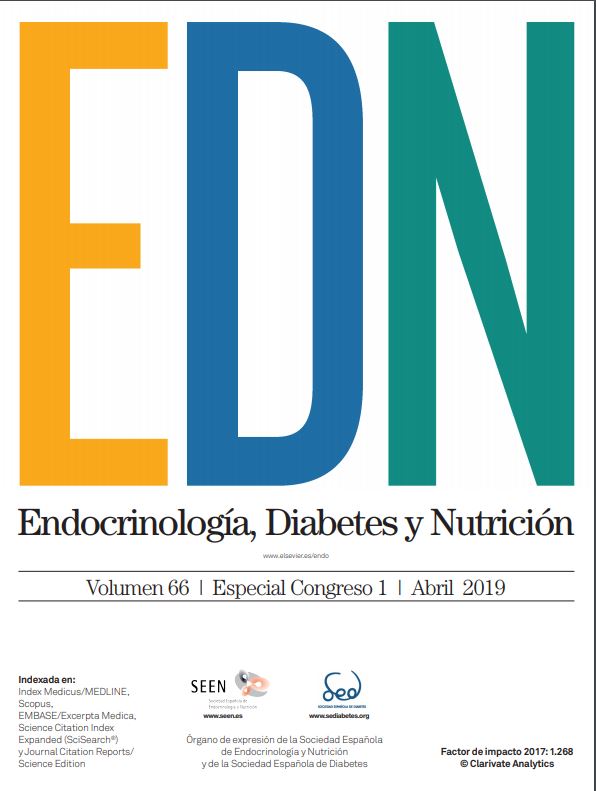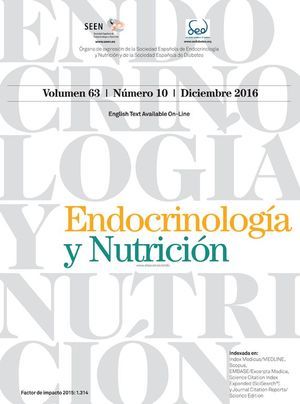O-034 - SARDINE ENRICH-DIET REDUCES T2D-DEVELOPING RISK IN A HIGH RISK POPULATION WITH PREDIABETES AND OLD AGE THROUGH DIFFERENT PREVENTIVE MECHANISMS INVOLVED
aDiabetes and Obesity Laboratory,Institut d’Investigacions Biomèdiques August Pi i Sunyer (IDIBAPS)-Hospital Clinic, Barcelona. bLes Corts Primary Health Care Centre, Transverse Group for Research in Primary Care-IDIBAPS, Barcelona.
Introduction: Fish has been seen to have many potential beneficial effects on metabolism and could also play a role in preventing T2D. This topic has been widely discussed but there has been little specification about the type of fish and the preventive mechanism involved in its health claim. For this reason, it is interesting to study the fish's nutrients that could have a greater preventive effect and which fish could be more interesting. The sardine is a source of omega-3 and taurine that, in isolation or in synergy, would produce T2D-delaying. T2D-progression delaying or stopping would be measured and also be explained through different molecular mechanism such as metabolomics, transcriptomics, gut microbiota changes or erythrocyte membrane fatty acids (FA) composition. Hypothesis: the consumption of twice a week of sardine, during one year would reduce T2D-developing risk in a high risk population with preDM and old age.
Material and methods: 152 individuals aged ≥ 65 yo with 100-125 mg/dl fasting glycemia were recruited from CAPSBE and were randomly distributed among two groups: control group (CG) and sardine group (SG). Both groups received the same T2D-prevention nutritional during a year but only SG had to add 200 g of sardine per week. All variables were collected before to start and at the end of the diet.
Results: Both groups improved anthropometric measurements and body composition equally. Systolic and diastolic blood pressure decreased only in SG (< 0.05). As we expected, the consumption of sardine-characteristics nutrients as omega-3, EPA and DHA, vitamin D, fluorine and taurine were higher for SG (p < 0.05). These results correlated with the increased of taurine, omega-3 FA and bile acids circulating metabolites (p < 0.05). Changes embrane erythrocytes FA were detected only in SG with a decrease of 5 omega-6 FA (p < 0.001) and an increase of 3 omega-3 FA types (p < 0.001). Transcriptomics showed only in SG a decreased of adhesion molecules VCAM-1, ICAM-1 and E-selectin; also of a proinflammatory gene TNFα, and an increased of cholesterol metabolism-related genes both RXR and LXR (p < 0.05). Microbiota composition only changed for SG with a decreased of Firmicutes/Bacteroidetes ratio and a decrease of total Bacteroidetes (p < 0.05). Subjects in SG, significantly compared to CG, decreased percentage classified-individuals in a very high risk group to develop T2D according to FINDRISK (p = 0.035). In addition to increasing HDL-cholesterol and adiponectin and decreasing triglycerides (p < 0.05), SG showed a lower HOMA-IR (p = 0.032).
Conclusions: Due to, SG improved blood pressure, membrane erythrocytes FA composition, T2D and CV disease risk genes expression, blood chemistry values, gut microbiota parameters and circulating metabolites and decreased percentage of subjects in very high T2D-developing risk group and insulin resistance, we conclude that a year T2D-prevention diet with sardine supplementation has a greater protective effect against developing T2D and CV events.







